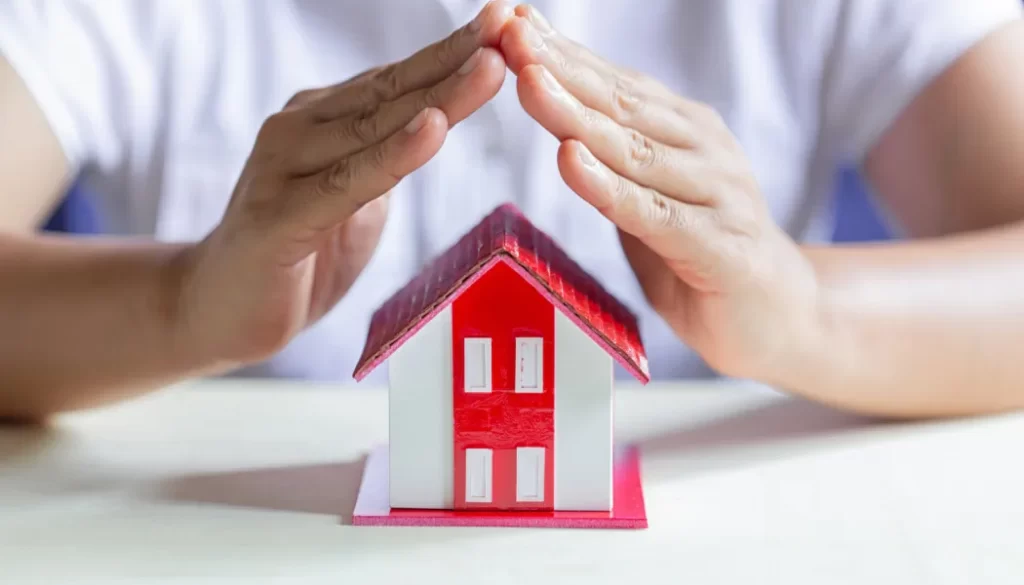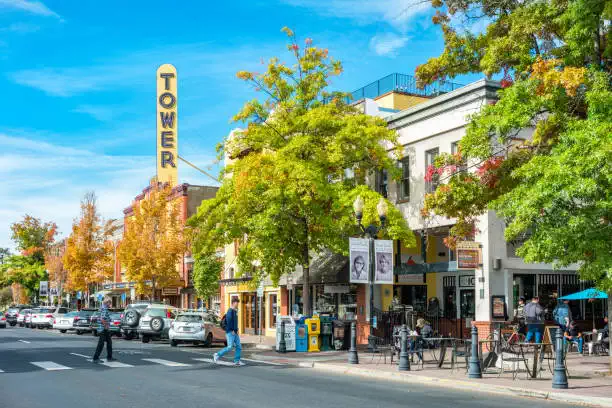Housing Assistance for Seniors in Michigan
Last Updated on January 7, 2024 by Rachel
Michigan is the go-to state to retire to since it has a cost of living below the national average. It also has a lot of employment opportunities that older adults can take advantage of and join the workforce. The elderly can stay peacefully since crime rates are low and the state has beautiful lakes and good weather any retiree could dream of.
With these benefits, how many seniors have Michigan attracted so far? 4 million Michiganders are above 50 years, which is 38% of the state’s population, which is higher than the nation’s average. The life expectancy in Michigan is 78 years.
What is the cost of living index that has attracted seniors to live in Michigan? The cost of living index is 91.5, which is below the nation’s average. It is important to mention that, older adults in Michigan have an okay income that helps them survive in this state.
The median household income for the elderly,64 years and above is $42,097, which is almost identical to the nation’s median income for this age. In addition, 28.9% of seniors above 55 are part of the labor force. Despite this, seniors with a fixed rate may face some challenges in Michigan that may make their stay not so comfortable.
Michigan has been ranked as the 13th most unavailable affordable housing state in the USA. There is a shortage of almost 71% of affordable housing, with the ones available being too old. The average age of houses is 36 years, which dates back to an era before the ban on lead and asbestos materials.
Seniors, in particular, are suffering, since there are long waiting lists for senior subsidized housing and it may take what seems like forever before a senior gets a decent roof that fits their budget. The housing cost of living index is 71.2, below the nation’s average.
On average, a home will cost you about $218,700 in Michigan to purchase. Recently, RentData.org reported that the rent for a one-bedroom and two-bedroom apartment will cost $614 and $773 respectively. Compared to other states, this is affordable. The average cost of adult day care is $1,679 per month, $3,500 monthly costs to live in assisted living facilities, $7,969 for a semi-private room, and $8,608 for a private room per month in a nursing home.
There’s more reason to celebrate! More than 1.48 million Michiganders qualify to get housing assistance from the U.S. Department of Housing and Urban Development. Furthermore, the state of Michigan already has programs that can offer assistance to its people.
What are the Housing Options Available to Seniors in Michigan?
Seniors in Michigan can pick one of the following options for residency:
- Independent Living
- Assisted Living
- Memory Care
- Nursing Homes
All these options are designed to meet the different needs of seniors at different times. Pick an option that best suits what you’re looking for whether it’s socialization, amenities, basic services, or healthcare.
State Assistance for Housing for Seniors in Michigan
These are some of the state-run programs you can benefit from as a retiree in Michigan to take care of housing:
The Michigan Homeowner Property Tax Assistance Program (HPTAP): The Michigan Homeowner Property Tax Assistance Program (HPTAP) assists low-income seniors to help them pay their property taxes. This program can provide up to $1,800 in property tax relief to eligible seniors.
The Michigan State Housing Development Authority (MSHDA): The Michigan State Housing Development Authority (MSHDA) offers a range of programs to help seniors with housing. MSHDA also offers the Michigan Homeowner Assistance Nonprofit Housing Corporation (MHA), which provides housing counseling and assistance to seniors who are struggling to keep up with their mortgage payments.
The Michigan Commission on Services to the Aging: The Michigan Commission on Services to the Aging assists seniors in Michigan with housing, as well as other areas such as health care, nutrition, and transportation. They offer a variety of programs, including the Home Heating Credit, which assists seniors with their heating costs.
The Michigan Department of Health and Human Services (MDHHS): The Michigan Department of Health and Human Services (MDHHS) assists seniors who require housing. This includes the State Emergency Relief (SER) program, which provides financial assistance to low-income seniors who are struggling with their utility bills or facing eviction.
The Area Agency on Aging (AAA): The Area Agency on Aging (AAA) is a network of organizations that provide services and assistance to seniors in Michigan. This includes housing assistance, such as the Home and Community-Based Services program, which provides in-home care and support to seniors who wish to remain in their homes.
The Michigan Low-Income Home Energy Assistance Program (LIHEAP): The Michigan Low-Income Home Energy Assistance Program (LIHEAP) assists low-income households, including seniors, to help them with their energy bills. This program can provide grants to help pay for heating and cooling costs, as well as emergency assistance for households facing a heating or cooling crisis.
The Michigan Property Tax Credit: The Michigan Property Tax Credit can provide tax relief to seniors who own their homes. This credit is available to households with an income below a certain threshold and can provide up to $1,200 in property tax relief.
The Michigan State Emergency Relief Program: The Michigan State Emergency Relief Program provides financial assistance to eligible households, including seniors, who are facing an emergency. This can include help with rent or mortgage payments, utility bills, and other essential expenses.
The Michigan Home Heating Credit: The Michigan Home Heating Credit assists low-income households, including seniors, to help them with their heating bills. This credit can provide up to $650 to eligible households.
Rental Assistance for Seniors
Here are some of the programs that offer rental aid to seniors struggling to pay their rental expenses:
Michigan Housing Choice Voucher Program-Section 8: A federally funded program managed by the Michigan State Housing Development Authority, Michigan Housing Choice Voucher Program-Section 8 provides rent assistance to low-income households. This program pays for up to 70% of the rent in apartments or flats chosen by eligible candidates.
The Michigan Coalition Against Homelessness: The Michigan Coalition Against Homelessness offers the Homeless Management Information System (HMIS), which is a database of housing and service resources in Michigan. The database includes information on rental assistance programs and other resources that can be helpful to seniors who are at risk of homelessness.
The Michigan Veterans Affairs Agency: The Michigan Veterans Affairs Agency provides rental assistance to eligible veterans and their families who are struggling to pay for housing. The program provides a monthly subsidy to help veterans pay for rent and utilities.
Home Repair Grants in Michigan
Can you, as an older adult, receive financial help to take care of home improvements in your home? Yes! Programs in Michigan that offer this kind of help include:
The Michigan Weatherization Assistance Program (WAP): The Michigan Weatherization Assistance Program (WAP) assists low-income seniors to improve the energy efficiency of their homes. This can include things like adding insulation, sealing air leaks, and replacing old appliances, which can help seniors reduce their utility bills and make their homes more comfortable.
United Way 211 Program: The United Way 211 program can connect seniors to rent assistance programs and other resources in their local community. Seniors can call 211 or visit the United Way website to get connected to local resources.
The Michigan Senior Homeowner Assistance Repair Program (SHARP): The Michigan Senior Homeowner Assistance Repair Program (SHARP) provides grants and low-interest loans to eligible seniors to make necessary repairs and improvements to their homes. This can include things like repairing roofs, replacing windows, and upgrading electrical systems.
Homeowner Repair Assistance Program: The MSHDA runs the Homeowner Repair Assistance Program, which provides grants to eligible homeowners to repair or replace their homes
The City of Detroit Emergency Home Repair: These grants are offered by the city of Detroit Planning and Development Department to seniors above 65 years. You can qualify for a maximum of $12,000 in grants for home improvements that remove health and safety hazards. The elderly with an income 5% lower than Detroit’s median income qualify for these grants. You have to live and own the home you seek to repair to be given the funding to improve it.
USDA Home Repair Grant: The U.S. Department of Agriculture can give up to $7,500 in grants to older citizens, 62 years and above, to correct health hazards in a home. The senior has to earn 50% less than the median income of the area and their home must be located in rural Michigan. The catch is to stay in the improved home for a minimum of 3 years, or the grant money will have to be repaid.
Are there Local Organizations or Charities that Offer Assistance with Housing?
If you’re facing homelessness or are at risk of being homeless, these are some of the organizations that can offer help with housing:
- Samaritas: this is a local organization in Michigan that provides temporary or permanent housing to seniors in need. Older adults are provided with housing support, nursing services, and rehabilitation in these houses.
- The Salvation Army of Michigan: As part of its humanitarian goal, the Salvation Army offers emergency shelter to the homeless elderly. You will also receive food assistance and nursing services when staying with them.
- The Michigan Statewide Independent Living Council (MISILC) provides information and referral services to seniors and people with disabilities who need housing assistance. The organization can help connect seniors to local resources for affordable housing, rent assistance, and other housing-related services.
- The Catholic Charities of Southeast Michigan provides financial assistance to eligible seniors to help them with rent and other housing-related expenses. The organization also provides case management services and other supportive services to help seniors maintain stable housing.
- The Michigan Community Action is a network of organizations that provide a variety of services to low-income individuals and families, including seniors. Many CAAs offer housing-related services, such as emergency rental assistance, home repairs, and weatherization services.
Are there Low-interest Loans for Housing for the Elderly in Michigan?
Here are some low-interest loans you can apply for to help you take care of housing-related expenses:
The Michigan Reverse Mortgage Program: The Michigan Reverse Mortgage Program can also be a helpful option for seniors who own their homes but may be struggling to make ends meet. This program allows seniors to borrow against the equity in their homes to access cash or a line of credit, which can be used to pay for living expenses or other needs.
Detroit Home Mortgage Program: The Detroit Home Mortgage program offers a low-interest loan to eligible seniors who want to purchase a home in the city of Detroit. The loan can be used to cover up to 20% of the purchase price and can help seniors who may have difficulty obtaining traditional mortgage financing.
The Home Improvement Loan Program: The Home Improvement Loan Program provides low-interest loans to eligible seniors who need assistance with home repairs and improvements. The program is administered by local governments and can be used to fund a wide range of repairs and improvements, including roofing, plumbing, and electrical work.
The Michigan Statewide Independent Living Council (MISILC): The Michigan Statewide Independent Living Council (MISILC) provides low-interest loans to eligible seniors who need assistance with home modifications or accessibility improvements. The loans can be used to fund improvements like wheelchair ramps, grab bars, and other modifications that help seniors age in place.
The Federal Housing Administration (FHA): The Federal Housing Administration (FHA) offers a variety of loan programs for seniors, including the Home Equity Conversion Mortgage (HECM) program. The HECM program allows seniors to convert a portion of their home equity into cash to help with expenses like home repairs, medical bills, and other costs.
Legal Assistance for Eviction
Any senior facing eviction or foreclosure can seek assistance from:
Elder Law of Michigan: Elder Law of Michigan is a nonprofit organization that provides legal assistance and advocacy to seniors. The organization offers a variety of housing-related services, including help with landlord-tenant disputes, foreclosure prevention, and affordable housing options.
The Michigan Legal Services: Michigan Legal Services is a nonprofit organization that provides legal assistance and advocacy to low-income seniors and other individuals who are facing housing-related issues, including eviction, foreclosure, and discrimination. The organization has offices throughout Michigan and can provide free legal assistance to eligible individuals
Legal Aid of Western Michigan: Legal Aid of Western Michigan is another nonprofit organization that provides free legal assistance to low-income individuals and seniors facing eviction. They offer a range of services, including legal representation, negotiation with landlords, and help with court forms and filings.
Michigan Advocacy Program: Michigan Advocacy Program is a nonprofit organization that provides legal assistance and advocacy to low-income individuals and seniors in Michigan. They offer a range of services, including legal representation, negotiation with landlords, and assistance with court forms and filings.
Legal Services of Eastern Michigan: Legal Services of Eastern Michigan is a nonprofit organization that provides free legal assistance to low-income individuals and seniors in Michigan. They can help seniors facing eviction understand their legal rights, negotiate with landlords, and represent them in court.
There you have it; housing in Michigan as a senior. Visit the Michigan Department of Aging and Elder Services to get information on state and non-profit organization programs that can assist you to mitigate housing-related challenges in Michigan.







